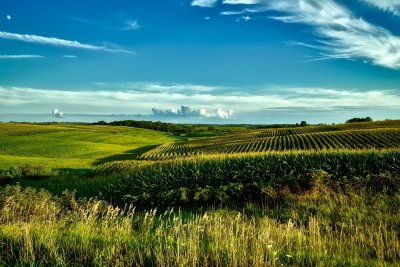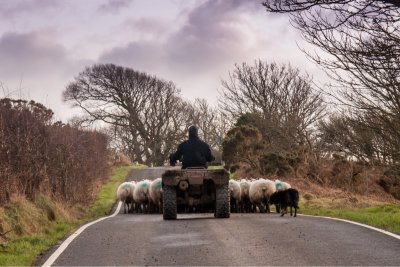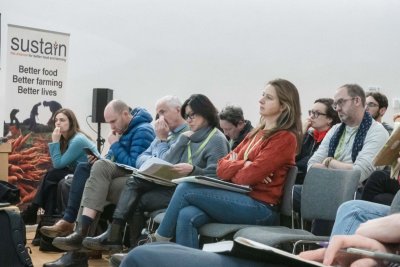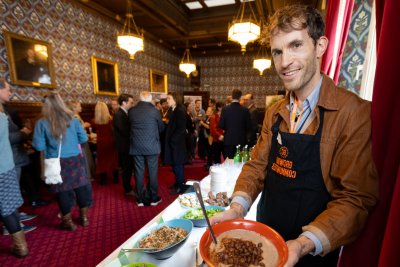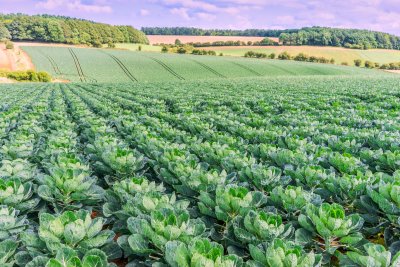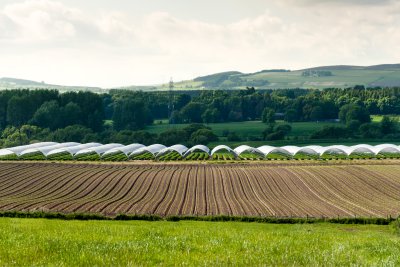21 organisations signed the joint response, highlighting key oversights in the government's proposed framework, intended to guide future decision making about land use in England.
Sustain submitted a joint response, undersigned by 21 of its alliance members, to the government's Land Use Framework consultation on 25 April 2025.
The Framework aims to guide how land in England is used, balancing food security, climate goals, nature recovery, housing, energy generation and economic growth. While supporting the framework’s goals to achieve multi-functional land use and change for nature recovery, Sustain flagged major assumptions and gaps that could limit its effectiveness.
Key concerns raised by alliance members in Sustain’s response:
- No mention of dietary shifts (e.g. reducing meat consumption) needed to meet climate goals; land use projections assume current diets persist.
- Farmers will stay dependent on public funds without stronger supply chain support for nature-friendly practices (e.g. retailer contracts favouring agroecology).
- Future land use estimates rely on ongoing yield increases (~0.5%/year), ignoring growing climate risks to harvests.
- Framework excludes 80% of farmland outside the scope for change.
- The consultation document states, “This is not going to tell people what to do with their fields”, but lack of clear prioritisation may hinder effective implementation.
- Agricultural Land Classification (ALC), which grades land according to its suitability for growing crops, currently forms the basis of decisions about agricultural land. However, it relies on outdated data (collected between 1940s–80s), and may overestimate land quality.
Recommendations for improvement of the Land Use Framework:
- Increase support for climate- and nature-positive farming via better-funded ELMs, more Higher Tier scheme uptake, whole-farm systems (e.g. organic), and advisory networks.
- Fruit and vegetable production makes up just 1% of land. To address the lack of UK horticulture support, the government should revive the horticulture strategy (abandoned by the previous government) and switch production to away from lowland peat, which is a major source of carbon emissions.
- Unlock peri-urban land for food, nature, and jobs. Allocating 1% could yield 530,000 tonnes of fruit/vegetables, £3bn in value, and 160,000 jobs.
- Regulate harmful practices: intensive livestock units (up 20% since 2016) are a leading pollution source. Require permits and limit growth in catchments areas at greatest risk of exceeding pollution limits.
- Maintaining intensive pig/poultry production at current levels would undermine climate goals and drives environmental harm overseas, by importing soy for animal feed (the production of which leads to deforestation).
- Enforce core environmental standards in all trade deals to prevent undercutting UK farmers and avoid damaging foreign ecosystems.
- Ensure a just transition by identifying areas which will see the most change, and invest in local jobs, skills, and enterprises there.
- Improve transparency in land ownership for greater accountability, by making HM Land Registry data freely available.
- Establish a National Land Use Commission to align local plans with national goals and enable interdepartmental decision-making.
Will White, Sustainable Farming Campaign Coordinator, said,
“The draft framework released by Defra embraces the principle of multi-functionality – valuing multiple ways that land can deliver for food, nature, climate and health. That is a really welcome step.However, there’s no modelling of dietary change or plans to scale up UK horticulture. It clings to the idea that intensive pig and poultry systems are a food security solution, despite their heavy environmental cost. And the basic data we need – on land ownership, use, and condition – remains incomplete and inaccessible.
We need a framework that properley addresses these tough topics, and one that moves from vision to clear policy action – with clarity and ambition.”
Read Sustain’s full response to the Land Use Framework consultation
Rural landscape. Credit: Pexels
Sustainable Farming Campaign: Pushing for the integration of sustainable farming into local, regional and national government policies.
